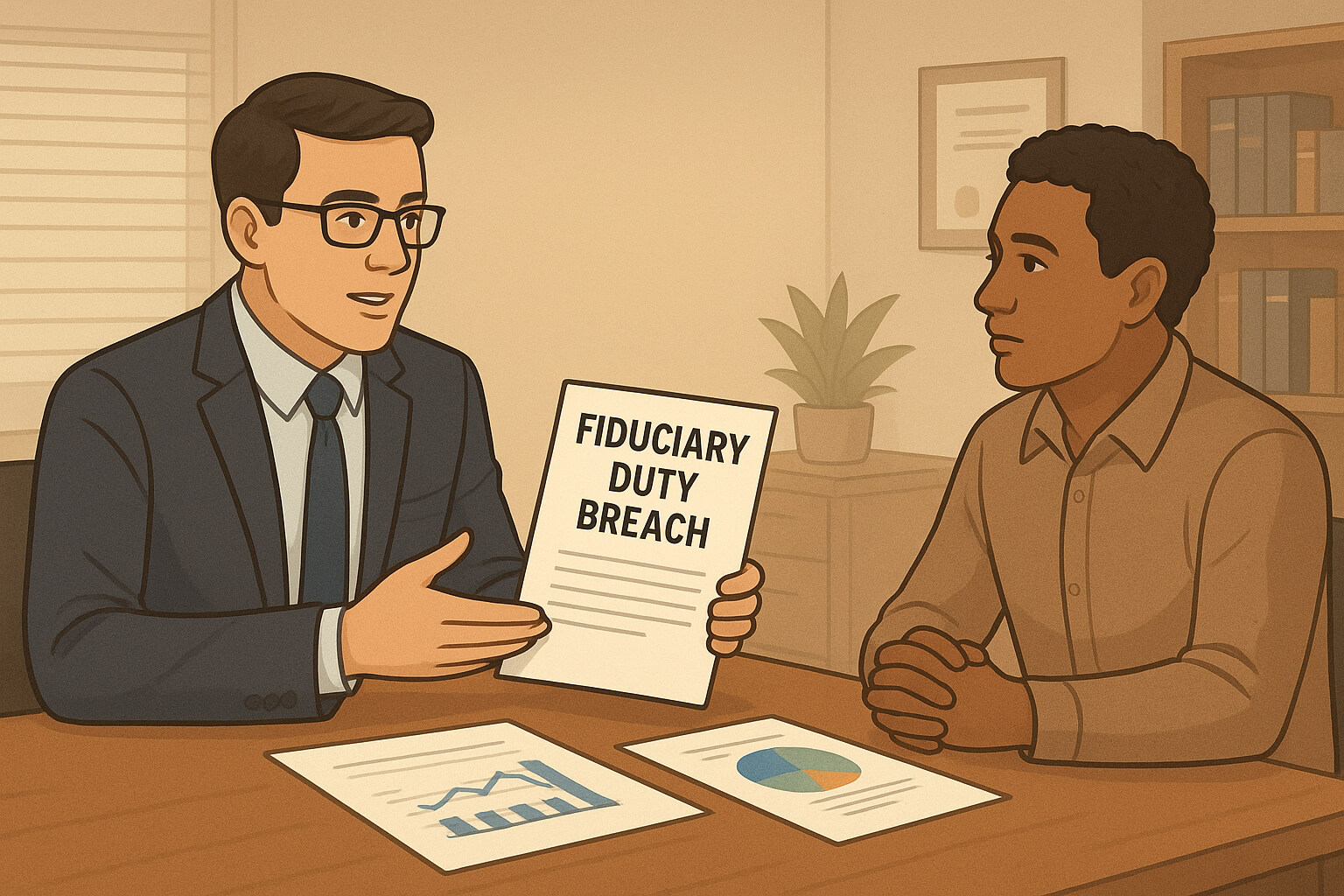September 19, 2025

In the world of business, law, and estate management, trust is a cornerstone. When that trust is legally binding—as it is in a fiduciary relationship—violating it can result in serious consequences. A breach of fiduciary duty occurs when a person entrusted with the responsibility to act in another's best interest fails to uphold that duty. This can lead to financial loss, damaged relationships, and costly litigation.
Whether you’re a business partner, trustee, corporate officer, or shareholder, it’s vital to understand what fiduciary duties are, how breaches occur, and what actions you can take to protect your interests.
For real-world insights, explore article on corporate litigation, which explains how experienced legal teams handle high-stakes disputes.
A fiduciary duty is a legal obligation where one party must act in the best interest of another. This duty arises in relationships based on trust and confidence, often involving the management of money, property, or decision-making power. The fiduciary is expected to act with loyalty, care, honesty, and good faith.
Common examples of fiduciary relationships include:
Each of these roles carries a legal and ethical obligation to avoid conflicts of interest, disclose material facts, and manage duties with diligence and integrity.
To learn more about fiduciary responsibilities in estate planning, check out guide to the role of a trustee.
Not every mistake is a breach of duty—but when a fiduciary puts their own interests ahead of the person or entity they serve, or fails to act responsibly, it can qualify as a breach. Here are several common types:
To explore how legal professionals handle complex financial disputes, review case study on resolving real estate title issues.
If someone has suffered a loss because of a fiduciary’s actions—or inaction—they may be entitled to legal remedies through a civil lawsuit. Courts can impose a variety of penalties and relief measures depending on the nature and severity of the breach.
For legal standards and best practices, the American Bar Association offers guidance on fiduciary law and litigation.
If you believe a fiduciary has acted improperly, it’s not enough to simply raise the issue. To prevail in court, you must provide evidence supporting four key elements:
Supporting evidence may include contracts, trust documents, communications, financial records, and expert testimony.
Choosing the right legal representation is critical. Read article on selecting a business lawyer for expert tips.
The best way to handle a breach of fiduciary duty is to prevent one from occurring in the first place. Here are some proactive steps businesses and individuals can take:
For fiduciary compliance in corporate settings, visit the U.S. Securities and Exchange Commission for detailed governance resources.
Imagine two business partners, Alex and Taylor, co-own a consulting firm. Unbeknownst to Taylor, Alex starts diverting high-value clients to a new business he secretly created. The firm’s revenue declines, and Taylor discovers the misconduct.
In this case, Alex breached his fiduciary duty by engaging in self-dealing and failing to disclose a conflict of interest. Taylor may be entitled to file a lawsuit seeking damages, removal of Alex as a partner, and recovery of lost profits.
This kind of situation is not uncommon and underscores why documenting agreements and maintaining transparency is vital in any fiduciary relationship.
A breach of fiduciary duty is more than just bad behavior—it’s a serious legal violation with long-lasting consequences. If you’re in a fiduciary role, you must act with integrity, care, and loyalty. If you’re relying on someone else to act in your best interests, it’s important to know your rights, recognize red flags, and act swiftly when those rights are violated.
Understanding your legal obligations—and working with the right professionals—is essential to protecting your business, your reputation, and your financial future.
Stay up to date with the latest tips, expert insights, product reviews, and step-by-step guides to help you grow, create, and succeed—no matter your industry or passion.